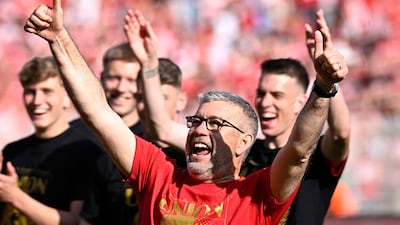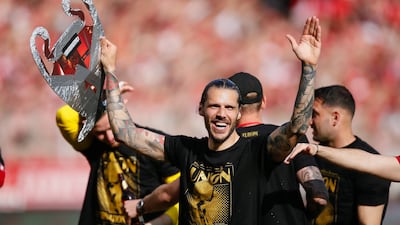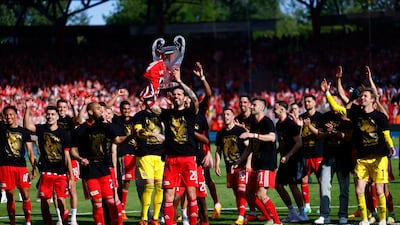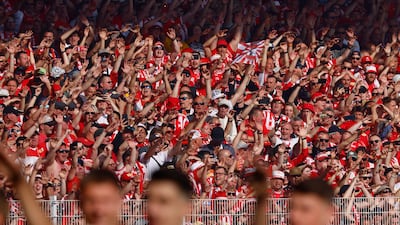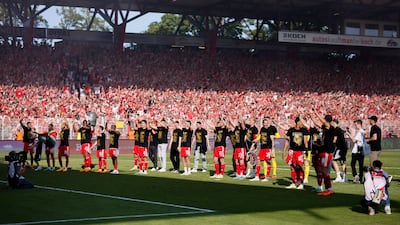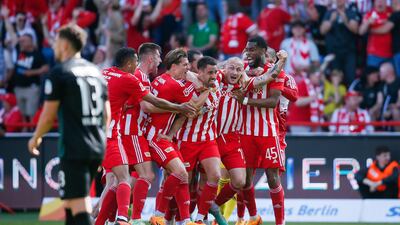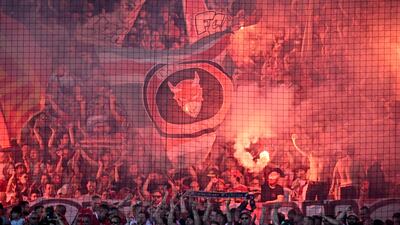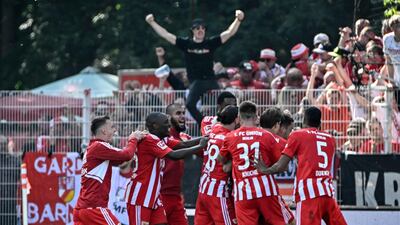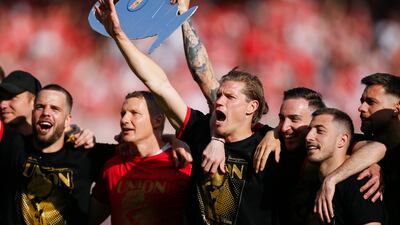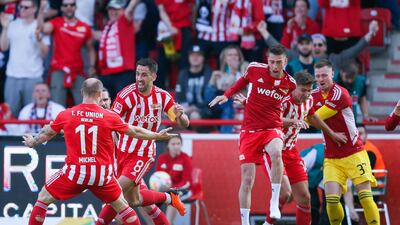Given the trepidation, some of them felt when they were first promoted to Germany’s top division, Union Berlin’s supporters might be gripped with anxiety at the prospect of entering the Champions League.
Not because of the standard of opposition they could face on their maiden voyage in Europe’s elite competition. For a side that has risen through the ranks of German football with startling haste in recent years, there is no reason to worry about anyone on that count.
Manchester City? Real Madrid? Bring it on.
But what about being a fully paid-up member of the big corporate machine that is the Champions League? It does not really fit with the ethos of the people’s club from out in the sticks.
A club whose entire home ground has a smaller capacity than the single stand “Yellow Wall” of Bundesliga rivals Borussia Dortmund. A mostly-standing venue which might not even be suitable for Champions League games, anyway, and could prompt a temporary exile across Berlin to the Olympic Stadium instead.
Kit Holden is a Berlin-based journalist who wrote a book on the extraordinary rise of Union. For its title, he borrowed the sentiment from a banner at the ground in the season promotion was sealed to the German top flight for the first time. It is an expletive, followed by: “We’re going up!”
“People were scared being promoted to the Bundesliga would ruin it all and make Union a normal commercial club, and take away some of the spirit,” Holden said.
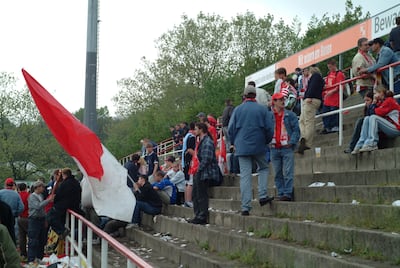
“That feeling is still there. Going into the Champions League has reawakened it. People are concerned that if this success keeps on going and going, at what point does it stop being the rebel club out in the woods?
“At what point does it stop being football as it used to be, and become a normal, massive commercialised club like any other in the Champions League?
“At the same time, there is a certain level of trust that the people in charge – the president, the board – they are lifelong fans as well and know what people love about going there.”
Holden says some of the myths about Union’s “rebel” status do not quite stack up. They were the second club in Berlin under socialist East Germany and regarded by their fans as being neglected by the authorities in relation to their neighbours, Berliner FC Dynamo.
Dynamo were the police club, with close links to the Stasi. They had the best youth players funnelled their way, and were granted the best facilities. Union survived in the shadow of the state-backed giant.

“Over the years that has morphed into a narrative that they were the resistance club who, if you supported, you were trying to bring down the state,” Holden said.
“That is not really an accurate description of how that country worked, how that state worked, and how football worked in East Germany.
“What is true is they were a club for people who wanted to escape the normalities of everyday life, and go and scream and shout, and do things they wouldn’t do in normal life.
“Over the years that has been romanticised into something more political than it probably was. But there is that spirit of rebellion, and the idea that if you support Union, you are a bit different and stick it to authority a little bit.”
Union’s increased prominence means they are rapidly becoming the hipster’s choice of Bundesliga clubs, but some were lucky enough to stumble across them way before they were famous.

Jacob Sweetman picked the club by chance when he moved from the UK to East Berlin 17 years ago.
“It was the first day of the season, they were at home, and I just wanted to do something which reminded me of home,” Sweetman said.
“Hertha [Berlin, who this season finished last in the Bundesliga] were away, but this club Union were at home. I got on the train, spoke no German, but stumbled on a guy who said, ‘I’ll help you.’
“I asked if I’d be able to get a ticket. He laughed in my face and said, ‘We haven’t sold a game out in 20 years.’ How things change.”
He bought his first season ticket not long after, when they were in the “third-and-a-half division” as he terms it.
Having chronicled the club via magazines and blogs for much of the time thereafter, he was last year brought in by the club to assist with their English-language communications – which he deems his “dream job”.
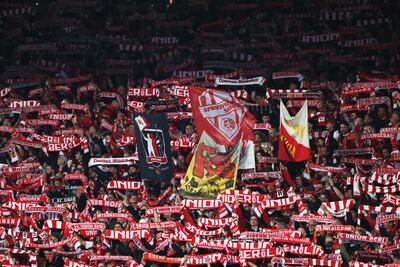
Fourteen years ago, Union won the third Division with a team of rough diamonds and grizzled old pros under a coach, Uwe Neuhaus, who has previously been a helicopter engineer.
Their president was confident they could establish themselves in the second tier of the German game. Fair to say they have exceeded that ambition.
With Urs Fischer, who won two Swiss titles with Basel before becoming Union coach, and Oliver Ruhnert, the director of football, at the helm, their advance has been stratospheric.
“For Union to get up to the Bundesliga was remarkable,” Sweetman said. “We had never been there. To stay up, incredible.
“To qualify for the Conference League, impossible. To make the last 16 of the Europa League, knocking out Ajax? This is the stuff of dreams.
“If you’d told people five years ago, we would be in that competition and beat Ajax, they would have laughed at you. Then we did it. It’s Ajax!
“We thought that is as good as it gets, but oh no – then we qualify for the Champions League.”
Along the way, they required a revamp of their Alte Forsterei stadium. Labouring for the rebuild was provided by hundreds of supporters on a volunteer basis. The idea that everyone is in it together is what has fuelled their rise and rise.
On the final day of this season, while almost everyone else was focused on Bayern Munich stealing the title in front of Dortmund, Union clinched the fourth and final Champions League place.
Their win over Werder Bremen meant they beat Freiburg to it, and the outpouring that followed was “utterly joyous”, according to Sweetman.
“It wasn’t my party, but we were there as part of it,” Sweetman said of the backroom staff joining the playing staff for the celebrations.
“Everybody I said congratulations to, from Urs Fischer, the coach, to Christopher Trimmel, the captain, they all said to me, ‘No, congratulations, it belongs to all of us.’
“I could have cried 20 times. That is the club in a nutshell.”
